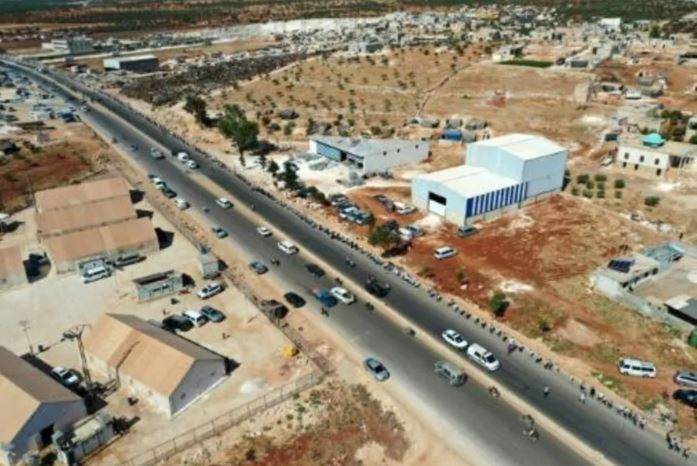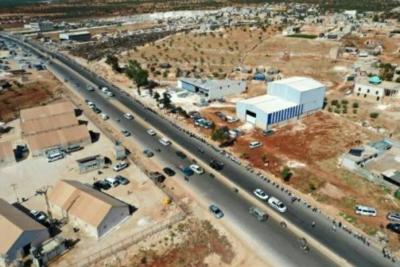The Kurdish self-administration in Syria criticized the United Nations Security Council on Saturday after it extended the cross-border aid delivery mechanism in northeastern Syria, but did not open the crossing leading to the areas under its control in the northeast of the country. The Security Council unanimously adopted a decision on Friday to extend the six-month, renewable humanitarian aid delivery mechanism across borders without Damascus's approval, which was set to expire on Saturday. Many NGOs criticized the U.S.-Russian compromise that allows the use of the Bab al-Hawa crossing only at the northeastern border of Syria with Turkey in the Idlib province, half of which is controlled by opposition factions and jihadist groups.
Russia, a major ally of the Syrian regime, had long sought to end this mechanism in favor of another that recognizes the passage of aid through front lines coming from Damascus to acknowledge its complete sovereignty over all Syrian territory. In 2014, the Security Council allowed aid to cross into Syria through four border points, but reduced this number at the beginning of last year under pressure from Russia and China, limiting it to the Bab al-Hawa crossing, which now sees about ten thousand trucks per month delivering aid to more than three million people in Idlib, the last stronghold of opposition factions.
The Kurdish self-administration, which controls the majority of northeastern Syria, stated, "We are not against delivering humanitarian aid to the Syrian people from any crossing, but we are against double standards and the significant threat to the humanitarian situation." It added, "This decision deepens our humanitarian tragedy as the siege on the region continues from all sides." The Kurdish self-administration and NGOs are calling for the reopening of the al-Yaroubiah crossing, with Ireland and Norway, the non-permanent members of the Security Council, having proposed a draft resolution regarding this issue.
David Miliband of the International Rescue Committee stated on Friday, "The Security Council (..) has failed once again to respond to the significant challenges facing the residents of northeastern Syria." He added, "The need for aid has risen by nearly 40%, and the Rescue Committee and other NGOs are facing a chronic shortage of basic goods." Human Rights Watch condemned the maintenance of only one border crossing, while Oxfam expressed concern over a "vague future" with the extension being "only six months." The Syrian government welcomed the decision, considering it a confirmation of the unity of Syrian territory. Syrian Foreign Minister Faisal Mikdad stated on state television, "External crossings are no longer the primary tool for delivering aid; the interior of Syria has become the basis."




